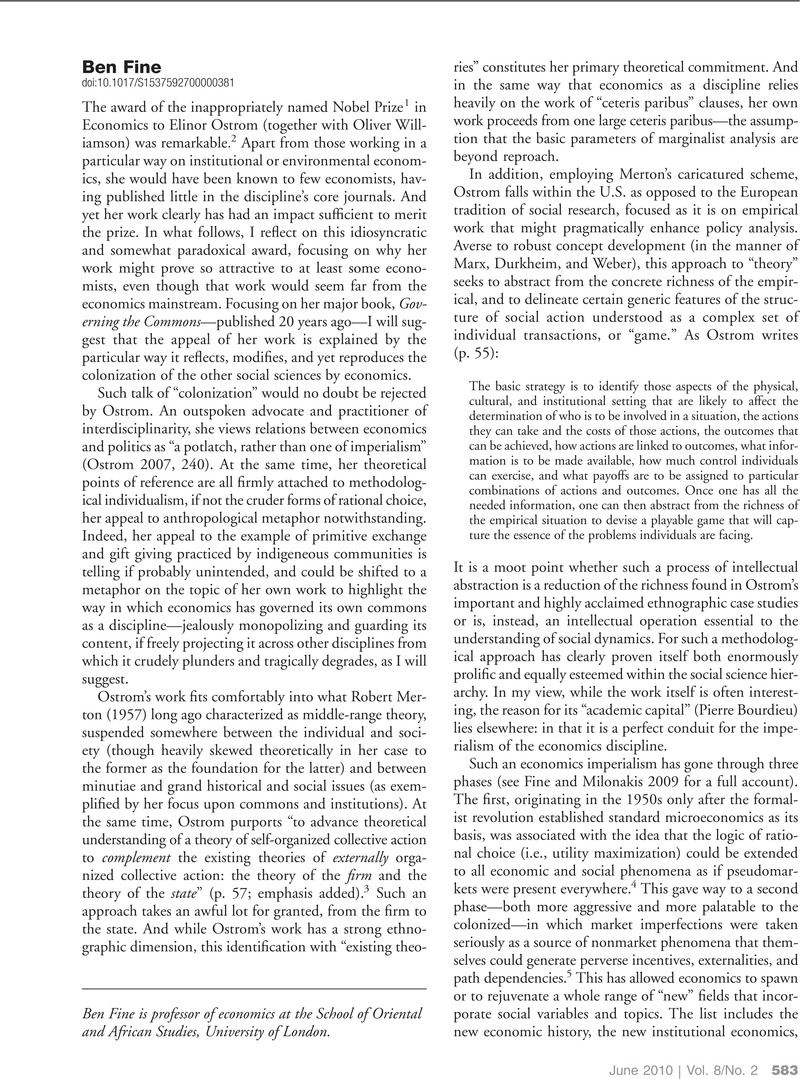Crossref Citations
This article has been cited by the following publications. This list is generated based on data provided by Crossref.
Persson, Anna
and
Sjöstedt, Martin
2012.
Responsive and Responsible Leaders: A Matter of Political Will?.
Perspectives on Politics,
Vol. 10,
Issue. 3,
p.
617.
Chanteau, Jean-Pierre
and
Labrousse, Agnès
2013.
L’institutionnalisme méthodologique d’Elinor Ostrom : quelques enjeux et controverses.
Revue de la régulation,
Vol. 14,
Issue. ,
Dupuy, Romuald
Roman, Philippe
and
Mougenot, Benoît
2015.
Analyzing Socio-Environmental Conflicts with a Commonsian Transactional Framework: Application to a Mining Conflict in Peru.
Journal of Economic Issues,
Vol. 49,
Issue. 4,
p.
895.
Dancette, Raphaëlle
and
Sebastien, Léa
2019.
The Actor in 4 dimensions: A relevant methodology to analyze local environmental governance and inform Ostrom’s social-ecological systems framework.
MethodsX,
Vol. 6,
Issue. ,
p.
1798.
Burnazoglu, Merve
2023.
Stratification mechanisms in labour market matching of migrants.
Cambridge Journal of Economics,
Vol. 47,
Issue. 1,
p.
67.



